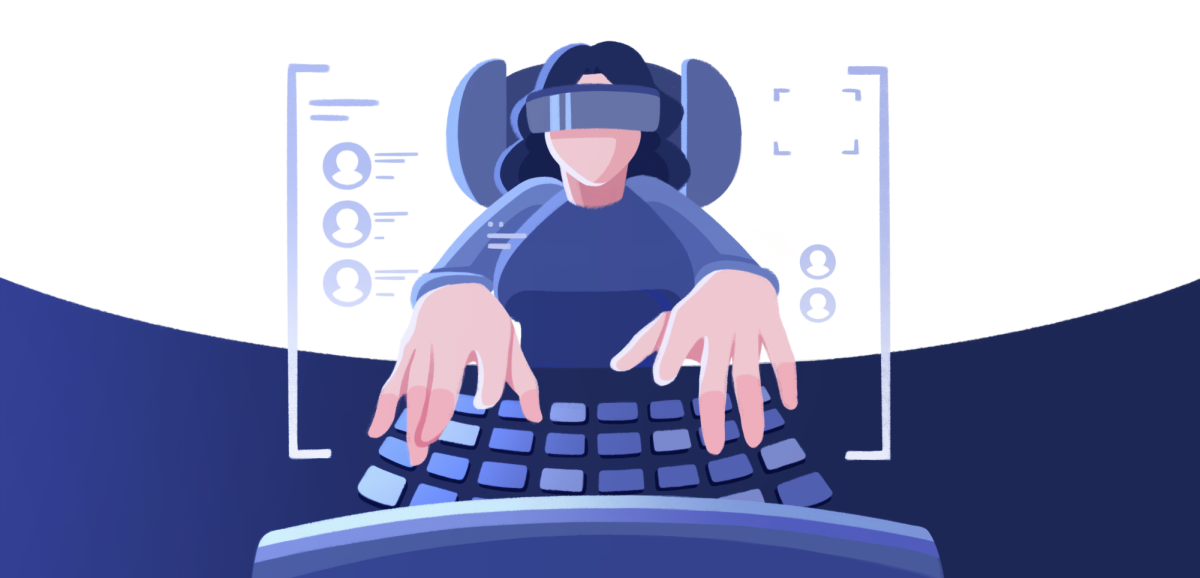If enacted, Assembly Bill 2097, proposed by Democratic Assembly member Marc Berman, will require all California school districts and charter schools to offer a computer science class by the 2026-2027 school year, making the class a graduation requirement by the 2030-2031 school year.
Twenty-seven other states currently require high schools to offer some kind of computer science course, and five of those states — Arkansas, Nebraska, Nevada, South Carolina and Tennessee — require students to complete a computer science class to graduate. In California, 45% of high schools offer computer science as a course, which is behind 40 other states. With California and the Bay Area at the forefront of innovation through technology, proponents of the bill argue that the next generation of students must be equipped with the skills needed to thrive in these career pathways. Those planning to work in the Bay Area should be educated on at least the basics of computer science.
Computer Science teacher and CTE Instructional Lead Christopher Bell said since technology has drastically advanced in recent years, computer science knowledge will be required in many career fields.
“Since we have an outburst of AI that’s going to be going into every realm and CS has been integrated into every field that you work in,” Bell said. “You should know a little bit about (computer science) so you can interact with it well and have discussions with other people about it.”
AP Computer Science and AVID teacher Roxanne Lanzot said even if a student is not interested in or dislikes computer science, learning the foundations is important to be a technologically informed citizen.
“The exposure to CS allows people to make informed decisions that could really impact your life, your financial future, your ability to get a good job (and) your ability to avoid all kinds of cybersecurity risks and attacks,” Lanzot said.
Moreover, Berman said AB 2097 can help close the existing gender and diversity gaps, ensuring all students in California have easier access to computer science classes at their schools. In doing so, proponents of the bill argue students can be better prepared to seek a wider array of jobs in different pathways after high school.
Even in Silicon Valley, Lanzot said there is still progress to be made to ensure everyone has equitable access to computer science literacy. She said even though Palo Alto boasts many professionals involved in tech, there are still many who haven’t been exposed to computer science, thus lowering chances of entering the technological workforce.
“The children of engineers get the exposure to engineering and then have the opportunity to become engineers themselves,” Lanzot said. “But there are many people who live in our community who aren’t engineers, and their children deserve the opportunity given the wealth of knowledge and job opportunities here.”
But senior Spencer Wu-Chin said students are already concerned with having less elective spots in their schedule, so they shouldn’t be forced into taking computer science, especially if they do not want to go into a career path that requires a heavy amount of computer science.
“The problem is that we have so many graduation requirements and it makes things very limiting,” Wu-Chin said. “The problem with making a whole new class (mandatory) is that it makes it harder for students to pursue things that they’re interested in or pursue their own passions.”
Bell said if the bill passes, teachers may push the initiative to create new computer science courses or change the prerequisites of the current CS classes offered at Paly.
“This is something district teachers have been talking about for a long time, with computer science being such a fast-moving field and with the need for all students to have some sort of understanding of how code and technology works,” Bell said. “Right now, Paly’s requirements are actually above the UC requirements for graduation, but the issue is we’ve never wanted to add a graduation requirement without removing something in exchange.”
Bell said the limited number of qualified teachers in California, as well as America as a whole, will pose a problem for all school districts if the bill is passed.
“Across the state, we already have a shortage of teachers, and then you need to have teachers that are credentialed in CTE or have some supplemental credentials that they can get for our district,” Bell said. “However, we have a lot of math teachers throughout the district that have also done some CS work, like science teachers or other teachers that have done some of that preliminary work as well.”
However, Lanzot said educating students in CS should be a priority because it will help prepare them for a workforce that is embracing technological advancements.
“As tech and AI rapidly change and evolve, we are going to have to teach different content,” Lanzot said. “It’s important to decide if you want to be a controlling stakeholder in that change or just a member of the audience.”




